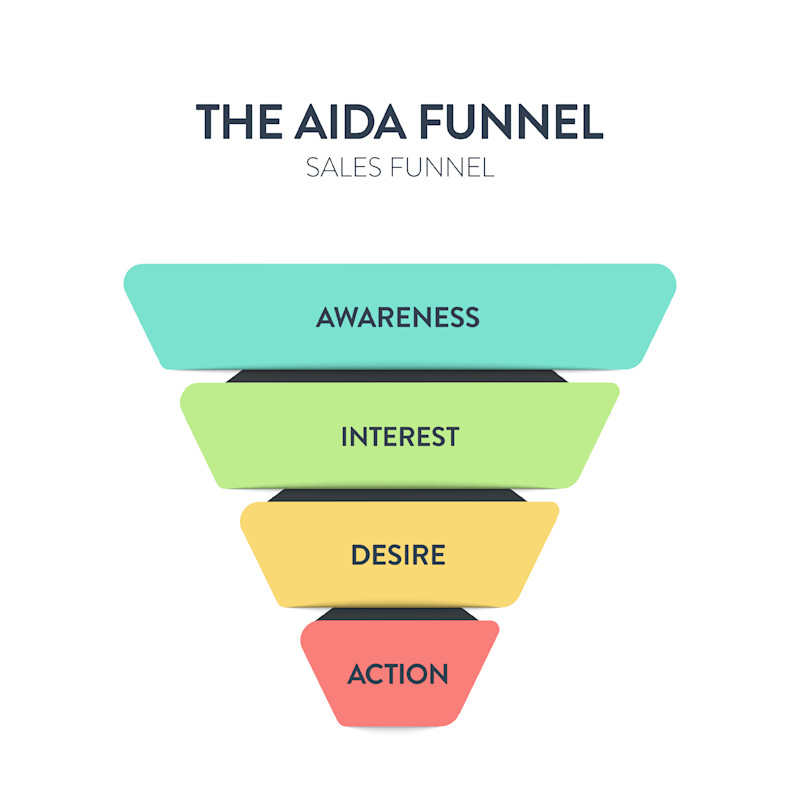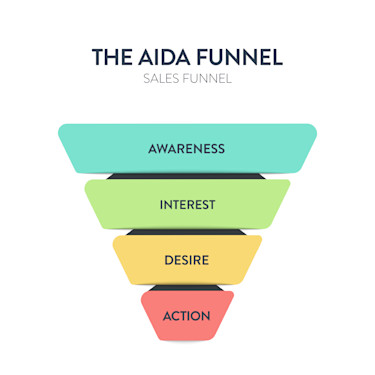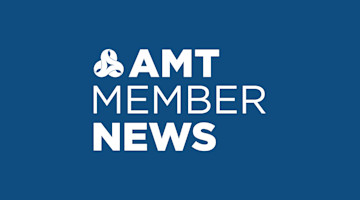Last Saturday marked the close of IMTS – The International Manufacturing Technology Show, the largest manufacturing technology show in the Western Hemisphere. IMTS, and shows like it, offer a unique opportunity for connection between the buyers and sellers of capital equipment.
There’s no doubt that a show as large as IMTS can be overwhelming. Seasoned exhibitors know that the few weeks following a show are crucial for following up with your leads. Here are a few tips and resources to help make the most of your post-show outreach:
1. Update Your CRM
Capturing leads in your customer relationship management system will help your team to effectively store and categorize them for future use. If you only do one step, this is the one! No matter the sophistication level of your CRM, capturing all your data in one place makes it easier for teams to parse through and track follow-ups.
IMTS exhibitors can download the leads captured on-site via CDS Xpress Connect. At the very least, uploading this table into your CRM will provide a useful list of follow-ups. Being intentional with those follow-ups allows you to control when and how your message is conveyed and lets you adjust your messaging to new or unexpected factors that may arise. Knowing and understanding your sales funnel and the targets within it will be particularly helpful.
2. Map Your Sales Funnel
If you haven’t, a simple mapping of your sales funnel will provide a high-level visualization of how your customer views your brand. This article from Forbes offers several templates for building sales funnels, which can easily be adapted to your needs. A good introduction is the AIDA model: Awareness, Interest, Desire, and Action. Likely, many of your leads are in the Interest phase of the funnel, and your goal is to move them into Desire. This is where lead scoring comes in.


It’s helpful to understand your targets for each stage of the funnel as well. For instance: what is your expected conversion rate from Interest to Desire? This will help you set targets for how many of your captured leads should convert to sales.
3. Score Your Leads
The leads you collected on-site likely vary in terms of engagement with your brand, relevancy, and stage of the customer journey. Utilizing a lead scoring system can help you to organize your leads based on several key factors, including demographic, firmographic, and behavioral data. Lead scoring is often quite intuitive. For example, a purchasing manager (demographic) in an industry you have a strong history of serving (firmographic) who follows your company on social media and has indicated a need for new capital equipment (behavioral) may score higher than an individual who is outside of your typical industries served, less familiar with your brand, less involved in the purchasing process, or unsure of their exact needs. HubSpot offers a free lead-scoring framework that is easy to adapt to your business.
Note: A lead with a lower score isn’t unimportant. It only means that they are at a different stage of engagement with your company and likely need additional nurturing to move to the next stage.
4. Segment Your Leads
Now that you have scored your leads, you can segment based on several factors, including demographic, firmographic, and behavioral data. Sopro.io offers a useful B2B segmentation guide. At a high level, we can consider:
Demographics: Demographics include information about an individual prospect, such as job title, job function, purchasing role, and more.
Firmographics: Firmographics offer data at a company level, including industry, region, and more. There will be overlap between demographics and firmographics, but together they offer a fuller picture of each customer.
Tiering: Segmentation by tiers is based on potential customer value. This considers the potential customer lifetime value and will be tied in with your lead scoring efforts.
Behavioral: Behavioral segmentation is based on, you guessed it, behavior. This can also impact our lead scoring framework and assign greater weight to leads who are more engaged with your company’s outreach. For instance, a prospect who has clicked on several links in your email outreach but has not converted to the next stage is likely ready for more interaction. Yet, a prospect who has not engaged in your outreach may need a different approach.
Other Considerations: We can also consider segmenting based on psychographics (which are tied to personal values), level of buyer sophistication, where they are in the buyer journey, or specific need, i.e., product category interest.
5. Personalize Your Outreach
Segmentation allows you to tailor your message to groups of similar prospects. Having a message that resonates closely with prospects makes it more likely that your prospects will convert to a desired action.
For instance, the message to a job shop owner based in Illinois may have different needs and considerations than a large OEM, even if both are looking for similar technology solutions. Similarly, the same person at a different stage of their buying journey will also need a different message. Segmenting allows your team to identify these groupings and craft messages most likely to meet your prospects’ needs.
6. Understand (and Maximize) the Tools Available to You
Maximizing your leads often comes down to revisiting the fundamentals, understanding the tools available, and increasing the efficiencies of your team. The steps above covered the fundamentals of lead follow-up, as well as links to a few helpful tools and frameworks.
There are often also resources available to exhibitors via show organizers. When considering IMTS 2024 specifically, all exhibitors have access to download their leads via CDS Xpress Connect.
IMTS 2024 exhibitors may also purchase a tool called IMTS Exhibitor Passport. This tool allows exhibitors to segment all IMTS 2024 and 2022 visitor data by job function, region, industry, product interest category, and more, and to retarget accordingly. Exhibitor Passport allows you to expand your reach to prospects beyond the leads scanned at your booth. Tools like this allow you to easily plan, create, and schedule your outreach and can be useful in expanding the leads available to you. When utilizing a tool such as Exhibitor Passport, the steps above are still relevant to ensure you’re effectively addressing a prospect’s needs and meeting them where they are in their journey.
If you’d like more resources for effective lead follow-up or if you have any questions or comments, please reach out to me at kbartschi@AMTonline.org.




